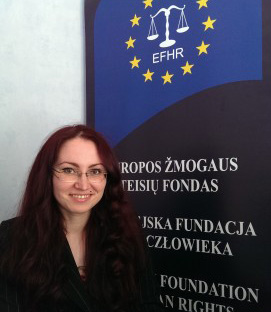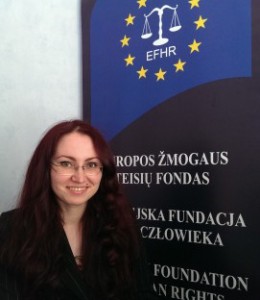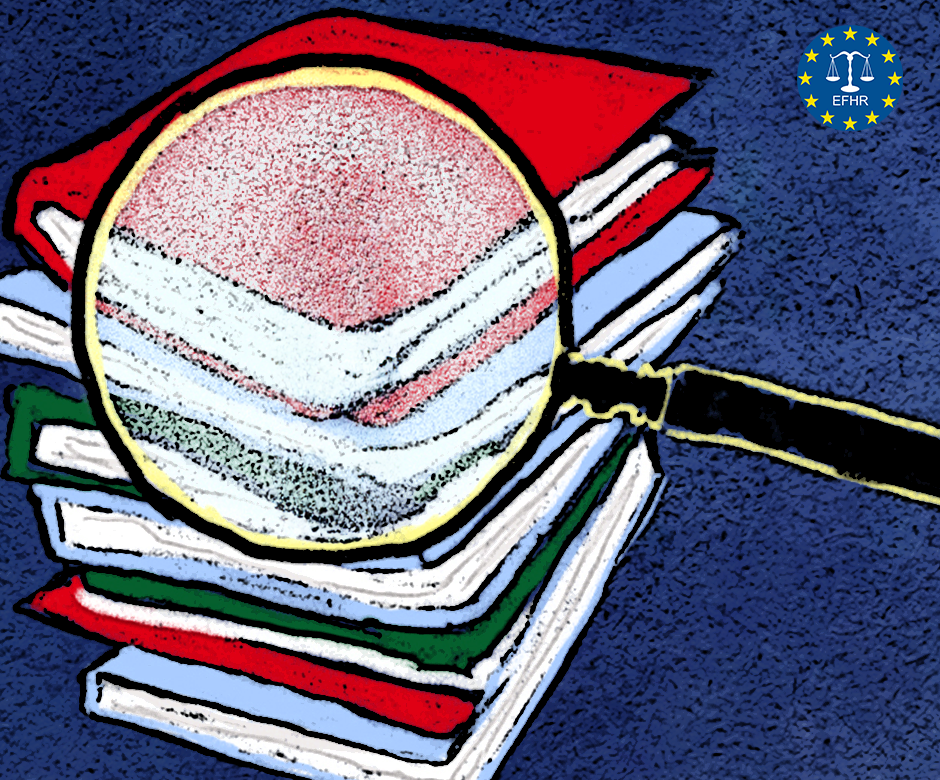- 2014/05/13
Original spelling of surnames should be regulated legally

 The issue of the original spelling of forenames and surnames in passports and identity cards still remains one of the most controversial topics, and one regularly covered by media outlets. On the 1st and the 10th of April this year in the Lithuanian Seimas two projects concerning the spelling of forenames and surnames were registered. The projects resolve the issue of the spelling only on the surface and in reality they don’t introduce significant legal changes which would be consistent with European standards (more about the first and the second project).
The issue of the original spelling of forenames and surnames in passports and identity cards still remains one of the most controversial topics, and one regularly covered by media outlets. On the 1st and the 10th of April this year in the Lithuanian Seimas two projects concerning the spelling of forenames and surnames were registered. The projects resolve the issue of the spelling only on the surface and in reality they don’t introduce significant legal changes which would be consistent with European standards (more about the first and the second project).
Against the validation of the spelling of non-Lithuanian surnames in their original form, Lithuanian linguists from the Institute of Lithuanian Language expressed their opinion. A list with a similar position was also signed by 45 Lithuanian writers who, amongst other things, pointed out that validation of non-Lithuanian symbols in documents would be contradictory to the constitutional rule of state language and it would be harmful to the unity of state and nation. Also mentioned is the fact that in 1938 there was a law established in Lithuania, allowing for the spelling of forenames and surnames of citizens of nationalities other than Lithuanian with non-Lithuanian letters.
The participation of EFHR in the issue of original spelling of forenames and surnames is aimed at a positive solution to the issue of the spelling of forenames and surnames, which comes from respect for fundamental human rights. In April of this this year EFHR turned to the State Commission for Lithuanian Language (SCLL, Valstybinė lietuvių kalbos komisija), whose function is the forming of guidelines in relation to state language policy and introducing arguments for accepting proper legal regulations concerning the issue of the spelling of forenames and surnames. Also, a meeting took place between EFHR and SCLL representatives, with one of the topics discussed being the Constitutional Court’s judgement from the 27th of February in which the Court claimed that the spelling of forenames and surnames in the Republic of Lithuania’s citizens’ passports is above all a language issue and the main consultative role in that issue should be served by SCLL.
During the meeting the chairman of SCLL assured everyone that the opinion of the Commission published on the 14th of January 2008 hadn’t changed. EFHR reminds all that in 2008 the Commission claimed that “foreign surnames are not involved in the system of Lithuanian language, and it does not think that in Lithuanian texts one should obligatorily Lithuanize them, just as one shouldn’t Lithuanize foreign trademarks, names of companies, periodicals, art complexes, sport teams. In each language functions a specified amount of foreign facts, amongst them surnames and names of places and no language system has been ruined because of that up until now. EFHR approves of the position of the Commission and counts on its stance being taken into consideration during the investigation for the next draft laws concerning the spelling of forenames and surnames.
The original spelling of non-Lithuanian surnames is a contemporary issue not only for representatives of national minorities, but more importantly for citizens of Lithuania who have married a foreigner. In this context it is important to bear in mind that as many as 16% of all marriages entered into each year amount to mixed marriages (those where one of the spouses is a citizen of another state). A substantial growth in the number of children born outside of Lithuania has also been noted, with this rising from 1% (2001) to 16% (2011). According to the bill on citizenship, a newborn baby has the right to possession of both Lithuanian citizenship and the citizenship of the second parent. That right, after applying the President’s amendments in 2010, was limited. A 21 year old person has to make the decision of choosing one of two citizenships. Taking into consideration statistical data, during the last 5 years 3284 people have lost Lithuanian passports by gaining the citizenship of a different state or, by freewill, renouncing Lithuanian citizenship. In the face of the current demographic crisis in Lithuania, it is worth evaluating the risk of losing citizens due to the issue of the spelling of forenames and surnames in documents. For instance, if a person has lived, for example, for 20 years in the UK and has used the original spelling of their name, when it comes to choosing citizenship there is little probability that this person will decide on the choice of a Lithuanian passport and an exchange of all their documentation.
The EFHR Legal Assistant talks about the need of applying proper legal acts during an interview for the portal www.manoteises.lt. (a link to the interview).
On the 5th of May this year the EFHR’s arguments indicating the need of approving the bill on original spelling of forenames and surnames, which would satisfy all inhabitants of the Republic of Lithuania, were also been introduced in the news: Lithuanian television TV3.
The issue of the spelling of foreign surnames on the basis of the Latin alphabet will come back to the Lithuanian Seimas floor following the election, thus no sooner than in June. The list of arguments indicating the need of approving of proper legal regulations on the spelling of forenames and surnames in Lithuania is long.
The arguments supporting the approval of proper legal regulations on the spelling of forenames and surnames in Lithuania:
- By passing the Act on Surnames on the 6th of December 1938, Lithuania established law permitting the names of non-Lithuanian nationals to have their names spelt with non-Lithuanian letters;
- The Supreme Council’s Resolution dated 1991 on the spelling of forenames and surnames in passports belonging to citizens of the Republic of Lithuania, introduced the possibility of having one’s forename and surname spelt with non-Lithuanian letters;
- The State Commission for the Lithuanian Language claims that „foreign surnames do not form a part of the Lithuanian language” and does not think that „it is necessary to Lithuanize them in Lithuanian texts […]”;
- The judgement given by the Constitutional Court of the Republic of Lithuania dated 27th of February 2014 provides that forenames and surnames can be spelt using not only those letters that are contained within the alphabet of the Lithuanian language but also by using symbols of Latin origin;
- The use of the Latin alphabet is commonplace in Lithuania (car registration plates, trademarks, company names, tourist information signs, etc.);
- Over 8,000 forenames such as Alexander, Katarzyna, Ewa, Tadeusz, Matthew, Maxim, Joanna and Odetta, and surnames such as Lacroix, Leszczyńska, Szczerba, Szulc, Brown etc., have already been registered in Lithuania;
- Lithuania ratified the Framework Convention for the Protection of National Minorities dated 2000, which provides representatives of national minorities with the right to use their forenames and surnames in accordance with their original spelling, and the right to have such names officially recognized;
- International organizations (Council of Europe, European Union Agency for Fundamental Rights, ESBO, Amnesty International and the Freedom House) have criticized Lithuania for not carrying out its duties in respect of the above;
- The European Parliament’s resolution regarding European languages in danger of extinction and linguistic diversity within the European Union, as adopted on the 11th of September 2013, indicates an urgent need for protecting languages of national minorities;
- “The Strasbourg Manifesto”, released on the 17th of April 2014, calls for the protection of minority languages and considers such protection to be one of the European Union’s policy priorities;
[wpfilebase tag=file id=600 /]
[wpfilebase tag=file id=599 /]
EFHR



